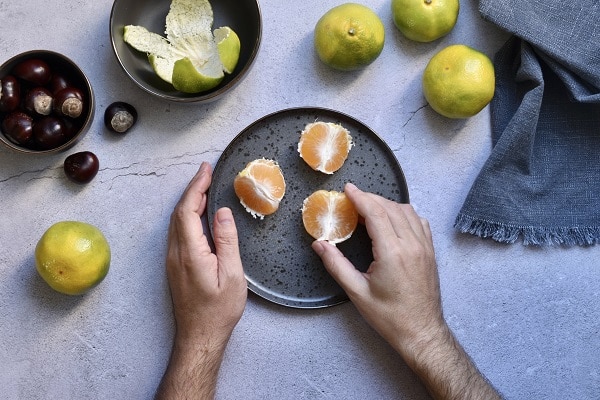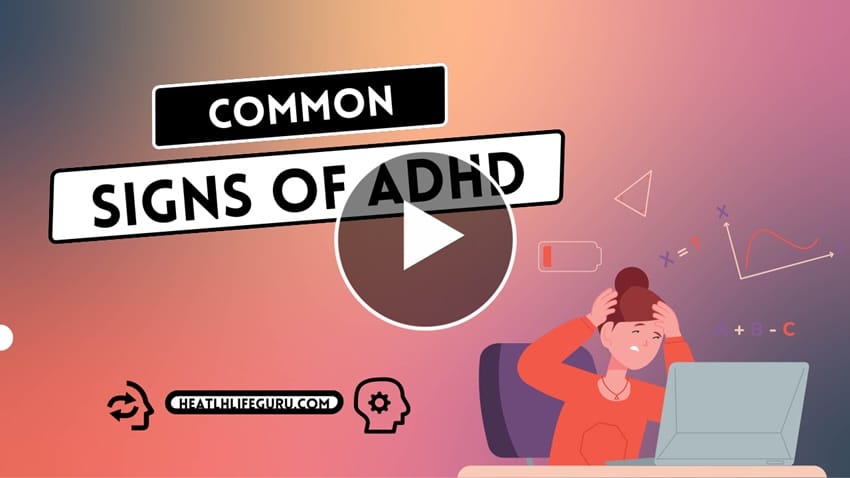Do you feel like you have a love-hate relationship with food? You’re not alone. Millions of people around the world struggle with their relationship with food. Some people overeat, while others starve themselves. Food can be both comforting and destructive at the same time. To help you get back on the right path, this article will discuss some different tips on how to fix your relationship with food. It will cover topics such as mindful eating, intuitive eating, and self-compassion. So if you are ready to make a change, these tips can help you get started!
Contents
Understanding How You Look At Food

Understanding how you view and interact with food is an essential step in achieving healthy eating habits. Your attitude towards food can be strongly related to your cultural background, philosophical beliefs, and forces of habit. For instance, some people may have a particular fondness for ‘comfort’ foods which they think of as providing security and assurance. On the other hand, diet culture has increasingly normalized restrictive eating practices among many communities, which can lead to problematic relationships with food.
It is vital that you evaluate how you approach food every day and make decisions based on what is best for your well-being. In addition, understanding the influence of your cultural context on your diet helps you be aware of any biases that aren’t conducive to healthy relationships with food.
Tips To Fix Your Relationship With Food
Once you take time to step back and honestly examine your relationship with food, you can start to take steps in the right direction. The following methods can help you retrain yourself and make positive changes to your diet:
Practice Mindful Eating

Practicing mindful eating is a powerful way to restore balance with food and end the all-or-nothing thinking that often creates unhealthy eating habits. Whether you’re trying to lose weight or just want to develop a healthier attitude toward food, being mindful of what you eat gives your body the nutrition it needs and puts you in tune with your own unique hunger cues. In addition, slowing down, listening to your body, and savoring each bite can help you pay more attention to feelings of fullness and contentment, reducing mindless snacking and tendencies toward restriction or overindulgence.
Mindful eating doesn’t have to be hard or laborious but instead should feel like a nourishing experience that takes time out of your hectic life to prioritize self-care. Using this approach can give you the grace you need to cultivate a calmer, healthier relationship with food.
Avoid Comparison Eating

Everyone should be able to enjoy food without guilt or anxiety, but the culture of comparison eating makes that difficult. Comparison eating is an unhealthy thought pattern in which people compare their portions or food selections to what someone else is having and then make decisions based on their perception of the other person’s plate. This can lead to feelings of deprivation and restriction if you’re unable to eat exactly what the other person has, compromising your relationship with food to please others.
The best way to address comparison eating is first being aware of it and then actively working towards releasing yourself from its control by focusing on nourishing your body with a balanced healthy diet rather than worrying about what those around you are eating. With this mindful approach, you may be surprised at how quickly your relationship with food starts feeling more optimistic!
Incorporate Intuitive Eating

Incorporating intuitive eating into your lifestyle can also be a helpful way for you to build a healthier relationship with food. Instead of viewing food as something to restrict and control, you learn to listen to the body’s signals and meet its needs – all in a non-judgmental manner. Through this approach, you begin to discover that it is possible to provide what your body needs without obsessing over every calorie consumed or turning to quick fixes in times of deprivation.
Plus, you gain an understanding of how different foods affect how you feel afterward — which then leads you to experiment and refine which foods work for your unique biochemistry. It’s an empowering journey that can feed deeper self-awareness and help break free from the trap of unhealthy eating habits.
Monitor Compulsive Eating Habits

Establishing a healthy relationship with food can be a difficult and long journey, but the effort can bring huge rewards. Another critical step is to become conscious of your compulsive eating habits. This is easier said than done, though; sometimes, it is necessary to monitor your eating behavior objectively in order to discover the patterns underlying it. For example, taking note of when you eat certain foods – even down to which ingredients you choose – will help you identify if there are any behaviors that may lead you towards becoming more dependent on food as a coping mechanism.
Once identified, you can then treat these behaviors as something that needs correcting; this could involve anything from developing better self-care techniques such as mindfulness or trying out healthier dietary approaches like intuitive eating. Through such methods, you can slowly start rebuilding your broken bond with food and embrace it in a nourishing yet balanced way.
Establish A Routine

Eating should be an enjoyable experience, and if you’re struggling to have a healthy relationship with food, establishing and maintaining a routine can be an effective solution. First, start your day on the right foot by setting aside some time for yourself in the morning – maybe it’s getting up early to make breakfast or even taking a few minutes of meditation before eating. Next, consider what type of meals are most nourishing for you (or consult a nutritionist if needed) and plan out when to fit each nutrient-dense meal into your daily schedule.
Sticking to regular meals prevents overindulging later in the day. Additionally, fill your plate with lots of filling veggies that are naturally low in calories, or try out portion control strategies like using smaller plates. Finally, don’t forget to leave room for treats now and again so you don’t feel deprived! With conscious effort, intending some structure into your life can help foster healthier relationships with food and teach healthy eating habits.
Practice Self-Compassion

Navigating your relationship with food can be difficult and oftentimes contributes to feelings of guilt and shame. One way to work towards a healthier attitude towards food is to practice self-compassion. Self-compassion helps you to view the situation more positively rather than focusing on self-crituction or exaggeration.
It encourages you to recognize that feeling uncertain and struggling with eating is normal, thus allowing you to take more constructive approaches, such as talking openly about your feelings or goal setting. In addition, learning how to respond compassionately towards yourself will enable you to build better relationships with food and your overall health without feeling overwhelmed.
Learning To Fix Your Relationship With Food Is Possible!
Learning to fix your relationship with food is essential for your physical and mental well-being, yet it can be difficult to achieve. However, by following the tips listed above, you can start to shift your mindset around food and transform how you approach food choices. Ultimately, it’s all about becoming aware of your relationship with food and striving to create a balanced, healthy one that is based on self-knowledge and self-compassion. Then, with consistency, dedication, and understanding, you can start to rebuild your broken bond with food and learn to embrace it in a nourishing yet balanced way.


